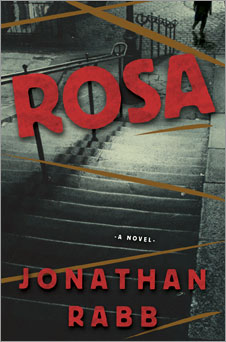Excerpt page 2
Had the revolutionaries been of one mind, thousands of innocents might have been spared the fighting. But the revolutionaries were socialists: Karl and Rosa wanted the genuine article, workers of the world rising as one, the death of capitalism, so forth and so on; Chancellor Ebert and his Social Democrats—terrified of a Soviet-style putsch—wanted a National Assembly, elections, and perhaps even a bit of help from various capitalist concerns so as to get the country up and running again. They might have called themselves socialists, but they were a peculiar breed willing to bring back the monarchy—in name only—in the hopes of restoring order. And then there were the sailors—the People’s Naval Division—just back from the front, leftists through and through, so long as they got their pay.
Revolution, however, matters only when the soldiers decide to take sides. In early December Prince Max von Baden and the General Staff chose Ebert, and while there were brief moments of hope for Spartakus after that—Christmas Day on the Schloss Bridge, cannons at the ready, hundreds of armed civilians forcing the government troops into retreat; January sixth, thousands more marching along the broad Siegesallee toward the War Ministry—they were only moments. Karl and Rosa made speeches and printed articles and convoked meetings, but in the end they were left to live on the run and on borrowed time. Troops had been spilling in from the front like so much dirty scrub water since late November. They were hungry for a fight, and needed someone to blame for their recent defeat. Who better than the Soviet-styled Spartakus? Oddly enough, it was Police President Emil Eichorn who was the one to give Ebert his opportunity to mop everything up. Eichorn’s allegiance to the Spartakus movement had never been much of a secret. The new government could ill afford that kind of official opposition, and so, on the eleventh of January, it was Eichorn’s politics that ultimately turned the police buildings on Alexanderplatz into the last battleground of the revolution. Refusing to leave his desk after receiving his dismissal papers—and with a group of Spartacists on hand to defend him—Eichorn gave Ebert no choice but to send in a battalion. It was only yesterday morning that the morgue had removed the last of the corpses.
The men of the Kripo had been elsewhere on the fateful day: they had known what was coming and had left Eichorn alone with his revolutionaries. Even so, there was still bad blood between the government soldiers and the men of police headquarters. It was why Hoffner now chose not to meet them head-on.
He sidestepped his way through several clumps of fallen brick and, turning right with the building, headed down Alexanderstrasse. Hoffner pulled open the outer gate and then made his way to the third door down. The building had lost power on the twelfth, the corridors once again lit by gas lamps. Hoffner followed his shadow to the back stairwell and headed up.
It was on the third floor that he finally ran across another human being. As it turned out, first contact came in the form of Ludwig Groener, distant nephew or cousin or something of the great General Wilhelm Groener, who had played so pivotal a role in December by placing the army in Ebert’s hands. Unlike his epic forebear, however, Groener the lesser marched to the rear, still a detective sergeant at fifty-one, with fewer and fewer cases coming his way. He had become quite proficient with paperwork, and now rarely left the building. Not that he was unpleasant, or embittered by his place in the grand scheme: he was, but that wasn’t the problem. Groener simply had the most notoriously foul breath. It seemed almost inconceivable that such a small man could produce so overwhelming a stench. Hoffner kept to his side of the hall as they passed.
“I hear you’ve found another one.” Groener’s voice trailed after him.
Hoffner stopped and turned around. Groener had gotten the hint over the years: he kept at a healthy distance during these conversations. “Really?” said Hoffner. “And who’d you hear that from?”
“The KD wants to see you.”
“The KD? Dropping off some files, were you, Groener? Overheard a little something?”
Groener ignored the comment. “He’s waiting in his office.”
Hoffner turned and headed down the corridor. “Then it’s lucky I ran into you,” he said over his shoulder. “Otherwise I would have been completely at a loss.”


